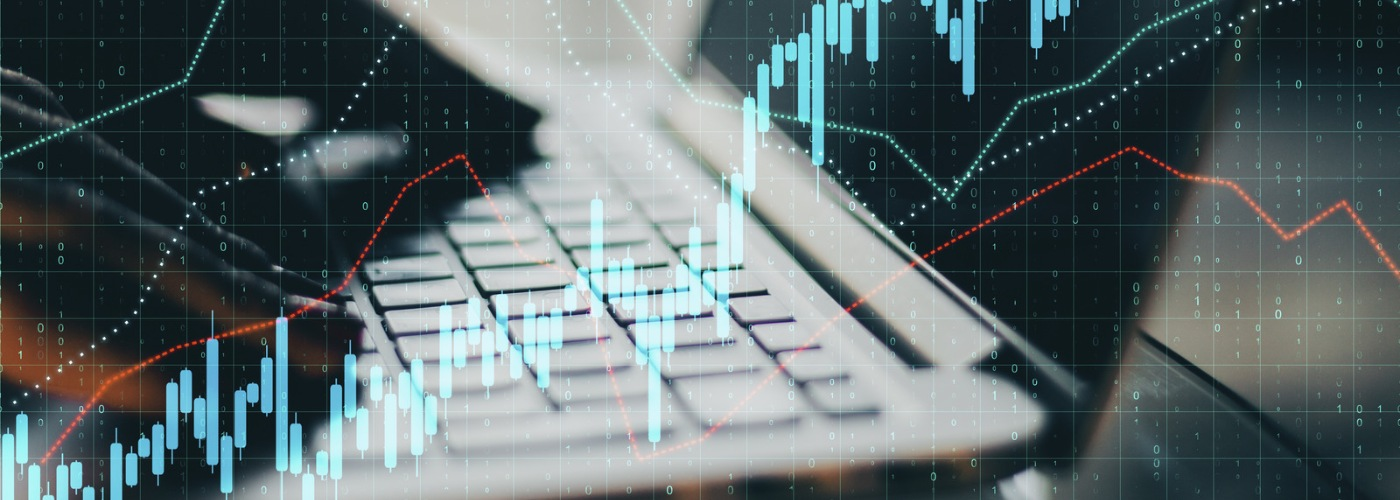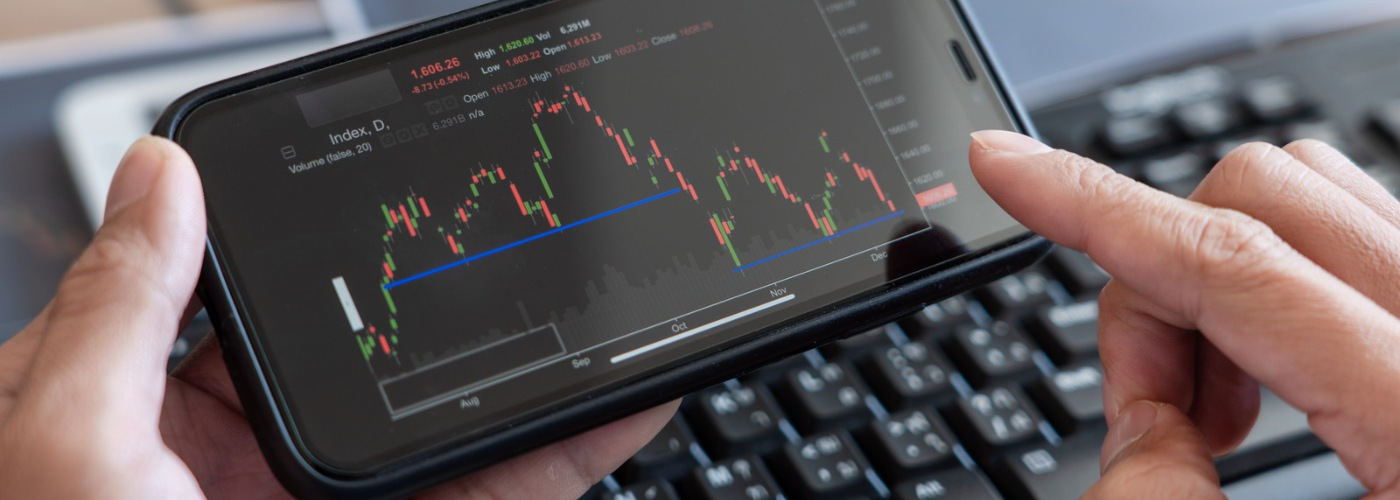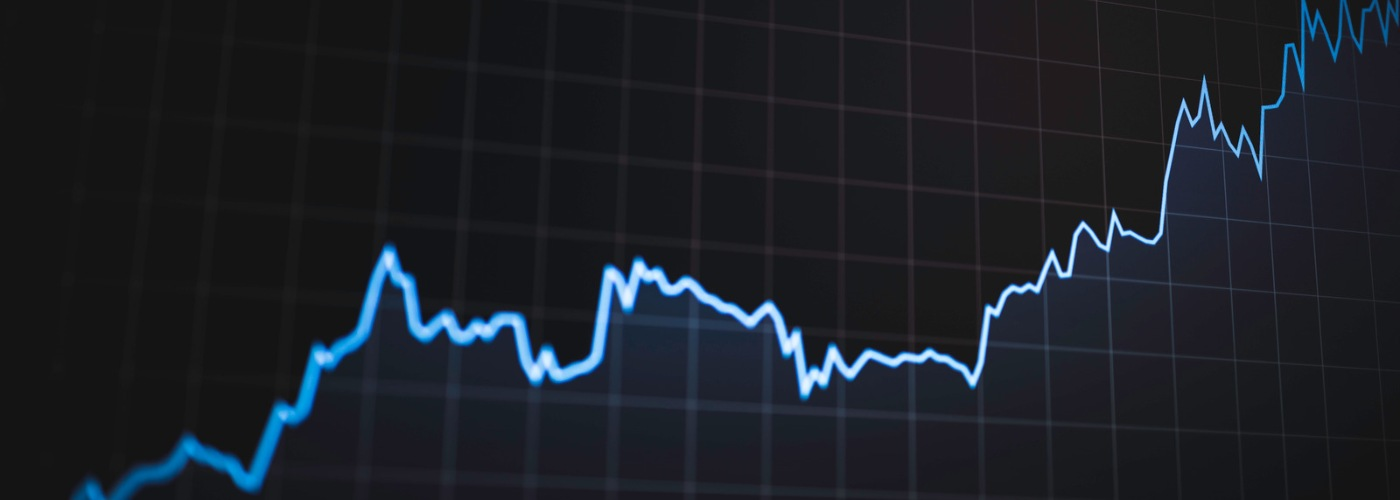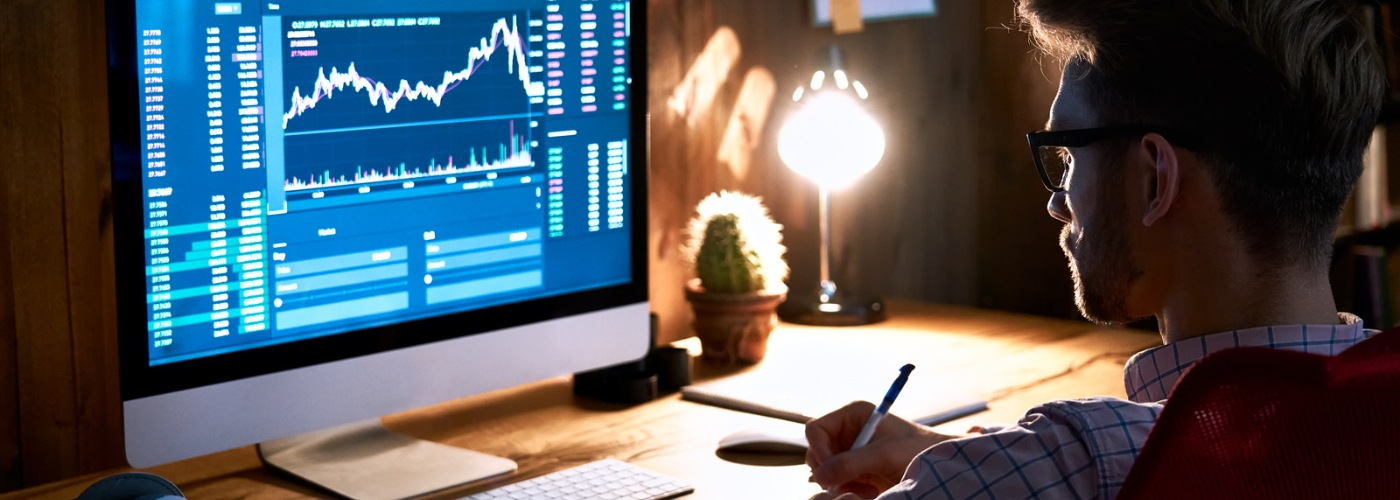Forex trading: how it works and basic principles

Description
Forex trading is the buying and selling of global currencies. Basic principles of forex trading. Beginner Tips.
The forex market is the largest financial market in the world, with over $5 trillion in daily turnover, and offers liquidity like no other market. The possibilities presented by it are too massive to ignore. Let's explain its meaning in the following article.
What is forex trading meaning, and how it works?
Every day, foreign currencies go up and down in value relative to one another. As with anything that changes value, traders can profit from these movements. The forex market runs 24 hours a day, making it a very liquid market. What surprises many investors is the size of the forex market, which is actually the largest financial market on Earth. The average daily traded volume is $6.6 trillion, according to the 2019 Triennial Central Bank Survey of FX and OTC derivatives markets. On the other hand, the New York Stock Exchange trades an average daily volume of just over $1.1 trillion.
Forex definition in general, can be formulated as follows: it is a continuous opportunity for traders to carry out operations in the framework of the volatility of various assets and markets. Another definition: what is FX trading? It is a market in which interested people (traders) exchange one foreign currency for another online at the rate of the largest global over-the-counter participants.

How does Forex work?
Forex trading is very important for the stable development of financial relations and the economy of digital assets.
Forex trading is similar to buying and selling other types of securities, like stocks. The main difference is that forex trading is done in pairs, such as EUR/USD (euro/U.S. dollar) or JPY/GBP (Japanese yen/British pound). When you make a forex trade, you sell one currency and buy another. You profit if the currency you buy moves up against the currency you sell.
How forex works. For example, the euro and U.S. dollar exchange rate is 1.40 to 1. If you buy 1,000 euros, you will pay $1,400 U.S. dollars. If the currency rate later moves from 1.50 to 1, you can sell those euros for $1,500, generating a profit of $100.
How does currency work, and what does forex have to do with it?
The currency market (also known as the foreign exchange market) is a one-stop marketplace where different currencies can be bought and sold by various participants operating in diverse jurisdictions around the globe. This market plays a very pivotal role in the conduct of international trade and the financial sector.
It serves companies and individuals by enabling them to purchase and sell goods and services denominated in foreign currencies and the smooth flow of capital. The currency markets and forex trading operate relentlessly and have significant participants such as large international banks, corporations, government entities, retail participants, etc.
A currency market is a place for trading in the currency where participants belong to various jurisdictions. Market participants enter the markets with different purposes. Together, they make the market more liquid and increase its efficiency. In addition, since the currency market timing is on a clock basis, the currency market provides the international banking system a more significant opportunity to handle the current and capital account transactions. As such, these markets are the driving force behind vibrant global economies.
It is important to note here that the currency market is a network of global markets that do not work simultaneously. They work as per different time zones starting with the Japanese marketplace, followed by Hong Kong, Singapore, India, the Middle East (Bahrain), Europe, the United Kingdom, the USA, and Canada, ending with Australia.
A live currency market deal with different currencies. These currencies are hugely impacted by fundamental factors such as the balance of payments formula, expected economic growth rate, fiscal policy by the government of the country, the autonomy of the Central Bank in the implementation of monetary policy, and the interest rate environment in general, which makes once currency depreciate or appreciate against other currencies.
It is an important market and plays an indispensable role in exchanging currency from one country to another. The successful integration of the world and free flow of trade is possible. The flourishing currency market enables buyers of goods and services and sellers to convert their foreign exchange receipts/payments into local currency. A foreign currency market involves traders, Speculators, arbitrageurs, investors, banks/FI and corporations, etc.; together, making the currency markets highly efficient and liquid.

Trading In the Currency Market: basic benefits
Before trading in this market, a trader must gather enough information and clearly understand it. However, currency market timing is 24 hours. It comprises two sides. Buy-Side has buyers of foreign currencies and forwards FX contracts. Sell-side consists of primary dealers in money and originators of foreign exchange contracts, such as large corporations.
The currencies are paired and traded, which means one currency is exchanged for another. But a significantly less number of currency pairs actually influence the market.
The price of each currency changes depending on the country's economic, political, and financial conditions. The market is closed from the evening of Friday to the evening of Sunday. Since important currencies are mainly traded during trading hours, they have the highest trading volumes.
Due to the pairing system, if the traders buy one currency, they must sell another. They are quoted as pips or percentages in points.
In a live currency market, trading is done in lot size, which changes as per the currency. Beginners or retailers try to trade in the smallest lot so that in case of loss, it is easily manageable for Forex investment.
A Brief History of Forex: how this type of trade developed
What is the forex market? The Forex market dates all the way back to ancient Mesopotamia, about 5000 years BC. This is when people would get a “receipt” - a piece of metal – as they handed in grain for storage. Gradually, people started using coins. Their weight varied depending on their denomination - the more valuable the coin, the more it weighed.
As international trade developed at the end of the 16th century, people realized that coins had different weights in different countries and, therefore, different denominations. This resulted in a switch to "identical" paper money, which could be exchanged for gold in a bank.
By the middle of the 19th century, people had adopted the concept of a "gold standard." It meant that people could exchange currencies based on how their rate related to gold.
Over time, however, there were concerns about whether some countries could maintain the right amount of gold to back their currency.
In 1944, Allied nations signed the famous Bretton Woods Agreement. It established the International Monetary Fund and declared the US dollar and the British pound as international currencies.
In 1971, many countries gave up the fixed exchange rate. Two years later, the Bretton Woods system collapsed.
In 1976, gold ceased to make up the bulk of the currency's value. Exchange rates began operating based on the market laws of supply and demand.
Then, in 1985, the Plaza Hotel hosted a meeting for the representatives of the most developed economies - France, Germany, the UK, the USA, and Japan. Central banks started influencing their countries' exchange rates from the outside.
Since 1990, the meaning of the Forex market has been available not only for large financial institutions but also for private investors and traders. About 5 years later, it started operating on the Internet. We can safely say that 1995 is the beginning of the Forex era as we know it.
Now, the total daily transaction volume in this market is about $5 trillion. This makes it the most liquid market in the world.
One of the most successful and prominent Forex traders, J. Soros, is known for allegedly devaluing the British pound alone. In fact, Soros famously sold the British pound (equivalent to 1 billion US dollars) at a time when the British pound had exhausted its growth potential. Just a small push was enough for its subsequent drop in value.
Another leading currency trader, J. Taylor Jr., started as an analyst at Chemical Bank. He’s famous for pioneering in the area of automated trading. What is forex trading, and how does it work? Let's continue…
An Overview of Forex Markets: Key Features
The FX market is where currencies are traded. It is the only truly continuous and nonstop trading market in the world. In the past, the forex market was dominated by institutional firms and large banks, which acted on behalf of clients. But it has become more retail-oriented in recent years, and traders and investors of many holding sizes have begun participating in it.
An interesting aspect of world forex markets is that there are no physical buildings that function as trading venues for the markets. Instead, it is a series of connections made through trading terminals and computer networks. Participants in this market are institutions, investment banks, commercial banks, and retail investors.
The foreign exchange market is considered more opaque than other financial markets. Currencies are traded in OTC markets, where disclosures are not mandatory. Large liquidity pools from institutional firms are a prevalent feature of the market. One would presume that a country’s economic parameters should be the most important criterion to determine its price. But that’s not the case. A 2019 survey found that the motives of large financial institutions played the most important role in determining currency prices.
Forex is traded primarily via three venues: spot markets, forward markets, and futures markets. The spot market is the largest of all three markets because it is the “underlying” asset on which forwards and futures markets are based. When people refer to the forex market, they are thus usually referring to the spot market. The forwards and futures markets are more popular with companies or financial firms that need to hedge their foreign exchange risks to a specific date in the future.
Spot Market in currency pairs trading
Forex trading in the spot market has always been the largest because it trades in the biggest underlying real asset for the forwards and futures markets. Previously, volumes in the forwards and futures markets surpassed those of the spot markets. However, the trading volumes for forex spot markets were boosted with the advent of electronic trading and the proliferation of forex brokers.
The spot market is where currencies are bought and sold based on their trading price. That price is determined by supply and demand and calculated based on several factors, including current interest rates, economic performance, sentiment toward ongoing political situations (both locally and internationally), and the perception of the future performance of one currency against another. A finalized deal is known as a spot deal. It is a bilateral transaction in which one party delivers an agreed-upon currency amount to the counterparty and receives a specified amount of another currency at the agreed-upon exchange rate value. After a position is closed, the settlement is in cash. Although the spot market is commonly known as one that deals with transactions in the present (rather than in the future), these trades actually take two days to settle.
Forwards and Futures Markets in currency trading
A forward contract is a private agreement between two parties to buy a currency at a future date and a predetermined price in the OTC markets. A futures contract is a standardized agreement between two parties to take delivery of a currency at a future date and a predetermined price. Futures trade on exchanges and not OTC.
In the forwards market, contracts are bought and sold OTC between two parties, who determine the terms of the agreement between themselves. In the futures market, futures contracts are bought and sold based on a standard size and settlement date on public commodities markets, such as the Chicago Mercantile Exchange (CME).
The National Futures Association (NFA) regulates the futures market in the United States. Futures contracts have specific details, including the number of units traded, delivery and settlement dates, and minimum price increments that cannot be customized. The exchange acts as a counterparty to the trader, providing clearance and settlement services.
Both types of contracts are binding and are typically settled for cash at the exchange in question upon expiry, although contracts can also be bought and sold before they expire. The currency forwards, and futures markets can offer protection against risk when trading currencies. Usually, big international corporations use these markets to hedge against future exchange rate fluctuations, but speculators take part in these markets as well.
In addition to forwards and futures, options contracts are also traded on particular currency pairs. Forex options give holders the right, but not the obligation, to enter into a forex trade at a future date and for a pre-set exchange rate before the option expires.

Basic Principles of Forex Trading
Your options
While traders in the stock market have thousands of stocks to choose from, the choices for forex traders are much more limited. How trade works. There are only eight significant economies with currencies that are popular among traders. They are the United States, Canada, the Eurozone, Australia, New Zealand, the United Kingdom, Japan, and Switzerland. The currencies of these countries are known in forex trader circles as “the majors.”
While you can certainly trade currencies from other countries as well, the majors have the most liquidity and the tightest spreads between buy and sell prices, which are both very important costs to pay attention to for active traders.
These economies also have the most extensive financial markets in the world. A trader’s job is basically to figure out which of these currencies will appreciate and which will depreciate and then place his trades accordingly in the forex market.
What affects exchange rates in the trading Forex market?
Lots of different things can affect exchange rates in the forex market. Among the most important such factors are interest rates. These are set by the central bank of each respective country, with higher interest rates usually leading to a stronger currency over time.
Economic growth, unemployment numbers, and trade balance between countries are other important factors influencing currency exchange rates. In general, any news that comes out with better-than-expected economic numbers about a country has the potential to boost the value of that country’s currency.
Another key thing to understand about the forex market is that currencies are always traded in pairs. This means that to buy one currency, you will simultaneously have to sell another currency. Although this may sound confusing at first, it really makes a lot of sense when you think about it.
In the same way, the value of one currency must always be measured in terms of another currency. There is no such thing as a currency getting stronger or weaker by itself without comparing it to others!
How to utilize leverage – safely
The forex market is one of those markets that can offer traders an incredible amount of leverage, which basically means that a trader will borrow money from his broker to boost his buying power in the forex market. Globally, brokers in the forex market offer anywhere from 1:20 to 1:500 in leverage, and sometimes even more.
Leverage can be very dangerous because it could cause you to lose money faster than if you were only trading with your own cash. However, it can also boost your profits in the same way. This is the main reason why the forex market is so attractive for the so-called independent retail traders – people like you and me who are trading Forex from our own homes.
Once you learn a few profitable trading strategies and master the game, the forex market can provide you the opportunity to make big profits with only a small amount of initial capital in your trading account. This is the true power of forex trading and why so many people want to learn about it!
Understanding interest rates
Since interest rates are key to how exchange rates between currencies move, understanding interest rates and the direction they are headed is one of the most important skills for any professional forex trader.
One of the ways traders keep up with this is to watch statements and speeches by central bankers very closely. When, for example, the Chairman of the US Federal Reserve speaks, you can be sure that forex traders worldwide are glued to their screens, watching for any hints of where the interest rate may be moving in the future.
Events like these usually lead to extreme volatility in the affected currencies, which is also something that specialized traders have learned to take advantage of.
Conclusion
The forex market is the largest financial market in the world, with over $5 trillion in daily turnover, and offers liquidity like no other market. The opportunities this represents are simply too big to ignore. However, all new traders must take the time to really understand forex trading definitions and learn important risk management strategies. Doing this could set anyone up for long-term success and an unlimited income stream from anywhere in the world.